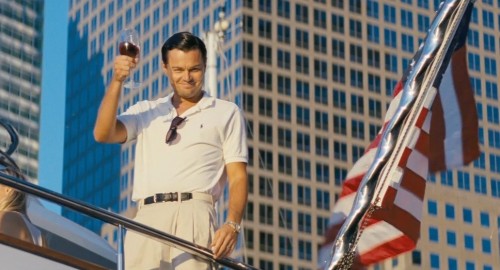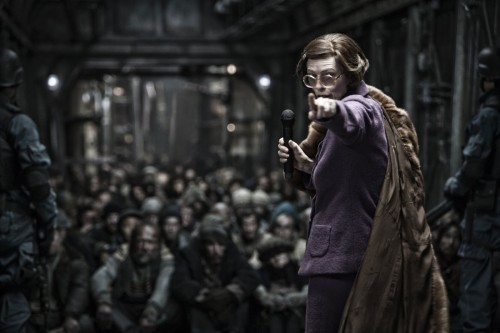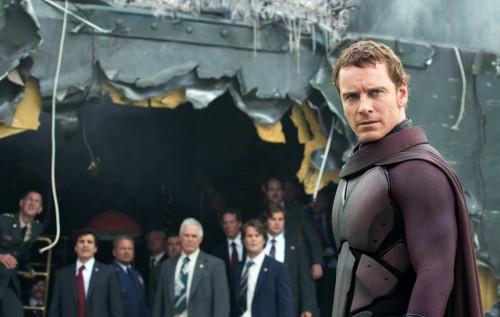By Greg Popil
By the time most directors reach their sunset years, the ones who have not yet retired are generally making movies that, directly or indirectly, are focused on the ideas of aging, wrapping up one’s affairs and imminent death. Clint Eastwood, for example, has made a minor industry out of filming variations of those concepts. Which makes it all the more remarkable that not only does the 71-year-old Martin Scorsese choose to tackle a tale of modern, youthful debauchery in “The Wolf of Wall Street,” he manages to make the movie seem effortlessly, exhilaratingly alive.
Leonardo DiCaprio, working with Scorsese for the fifth time (and bouncing back as a collaborative team, after the wildly uneven “Shutter Island”), stars as Jordan Belfort, a hungry young Wall Street nobody who, after an eye-opening lunch with a veteran broker (an awesomely sleazy Matthew McConaughey), strikes out on his own and begins hustling worthless stocks from which he is able to keep huge commissions. He pulls a likeminded group of dirtbags into his orbit, and together they begin a meteoric rise to wealth and descent into addiction and debauchery.
None of what happens in the first act is terribly surprising, or original. “Boardwalk Empire” showrunner Terrence Winter’s script leans a little too hard on voiceover to explain what this top-flight cast could easily convey with their eyes, and there were moments when the movie feels like it was falling into the trap of telling more than showing, not unlike Scorsese’s “Casino.” But damned if the movie doesn’t manage to suck you in anyway. Working with Scorsese for the first time, cinematographer Rodrigo Prieto’s camerawork manages to capture the exhilarating high of every single money and drug score that these guys pull off, sinking down low enough to make people who party on yachts and buy out entire hotel floors look like they live in the muck. And Winter’s script does manage to settle in, allowing even the most debased and lecherous supporting characters some genuine dimension.
As probably the most debased and lecherous of those characters, Jonah Hill, who recently escaped from the comedy-only ghetto with his fine work in “Moneyball,” nearly walks away with the movie. If DiCaprio has become Scorsese’s new Robert de Niro stand-in, as the charismatic, dangerous lead, Hill has now made his case to be his new Joe Pesci, the deranged, out-of-control but still somehow likeable sidekick. With bleached teeth, an incestuous marriage, and a managing style that makes Alec Baldwin in “Glengarry Glenn Ross” seem cuddly (hint: do not clean your fishbowl in the office while he is watching), Hill’s Donnie Azoff could have come off as a disgusting sub-“Two and a Half Men” caricature, but Hill invests him with real pathos, particularly near the end.
Which is not to say that there is any way to feel that, as drug addiction and the law (represented by Kyle Chandler in the film’s sole underwritten role) close in around them, that these people don’t get exactly what they deserve. The fun highs of the movie begin to dissipate, and the connections that Belfort thought that he had with his friends and family (including his wife, played by the absolutely stunning newcomer Margot Robbie) ring more and more hollow. Some people have criticized the movie for not showing the harsh fallout that the victims of these scams suffered, which is kind of like saying that “Goodfellas” would have been a lot better if it had followed the life of the owner of the Bamboo Lounge after he lost everything to the mob. These guys lived in a fog of their own delusional self-importance, so there’s no reason we should see outside of it for the course of the film. To see if a person has what it takes to work for him, DiCaprio’s Belfort would walk up to them and simply say “Sell me this pen.” Entering the fifth decade of his career, Scorsese has forgotten more about selling pens, and stories about terrible people doing terrible things, than most of us will ever know.
Rating: 74/81




Leave a Reply